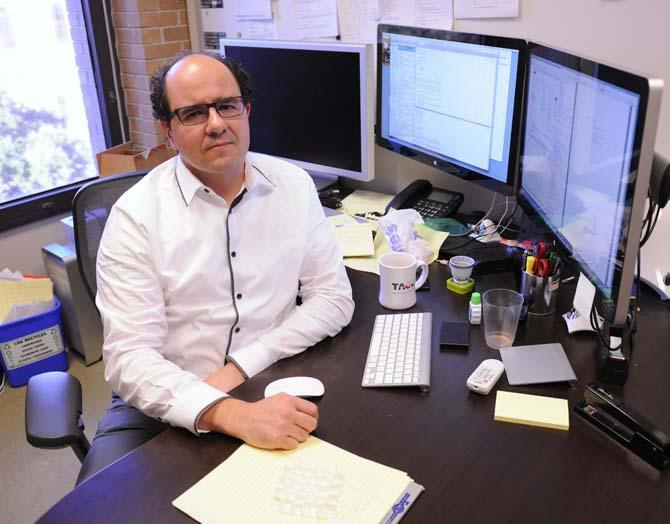For some students, math courses may seem more like a chore than a useful skill, but Blaise Bourdin, University Center for Computation and Technology adjunct faculty and associate professor of mathematics, is working with other departments to use math in combating renewable energy problems.
Bourdin’s research deals with geothermal energy, which comes from steam from volcanoes and other locations rich in heated rock. When this steam is harvested, it can be used as a power source.
“The wealth of a university is not just what we own,” Bourdin said. “It’s what we can invent.”
Bourdin and his colleague’s geothermal energy research is now in its last phases, and Chevron plans to implement the final produce.
Bourdin said his research method utilizes linear elastic fracture mechanics and complex geometry to make more accurate predictions about how to access steam, along with thermodynamics.
The research remained purely theoretical until Bourdin secured a $400,000 grant from Chevron, the largest global producer of geothermal energy.
“You start in theoretical areas, but once you develop enough understanding, you can transition to having a direct impact on people’s lives,” Bourdin said.
Using SuperMike, one of the CCT’s supercomputers, Bourdin and his colleagues created a theoretical model outlining the flow of the cracking system.
After reading a 2006 research report from the U.S. Department of Energy and Massachusetts Institute of Technology, Bourdin’s interest in geothermal energy grew.
There was remaining difficulty with how to generate fractures in rocks in order to harvest steam, Bourdin said.
The harvesting process requires drilling fractures into the rocks, so water may be injected to induce steam production.
Bourdin received a $314,000 grant from the National Science Foundation to help accurately predict how rocks will fracture.
In the past, researchers used classical mechanics in their geothermal energy studies, but they did not have enough equations to complete the problems and had to make assumptions about where the cracks would grow, Bourdin said.
Bourdin said he feels grateful to be at a university where different disciplines can come together to collaborate on real-world projects.
“The wealth of a university is not just what we own … it’s what we can invent.”
Professor receives Chevron grant
By Renee Barrow
November 25, 2013
Blaise Bourdin, LSU Department of Mathematics associate professor and Center for Computation and Technology adjunct faculty, received a grant from Chevron to conduct research about energy from Earth’s core.





